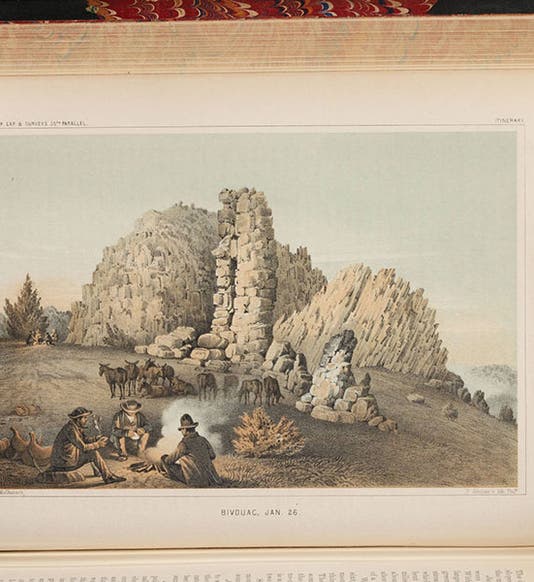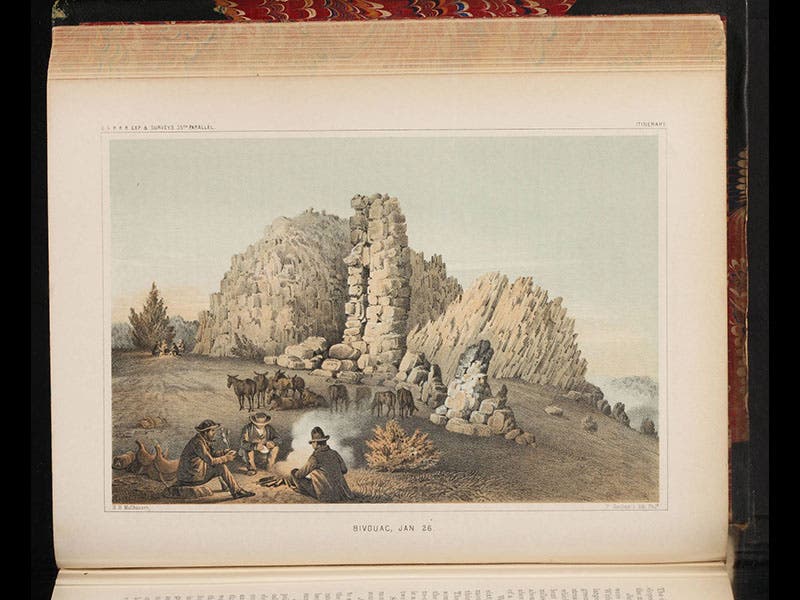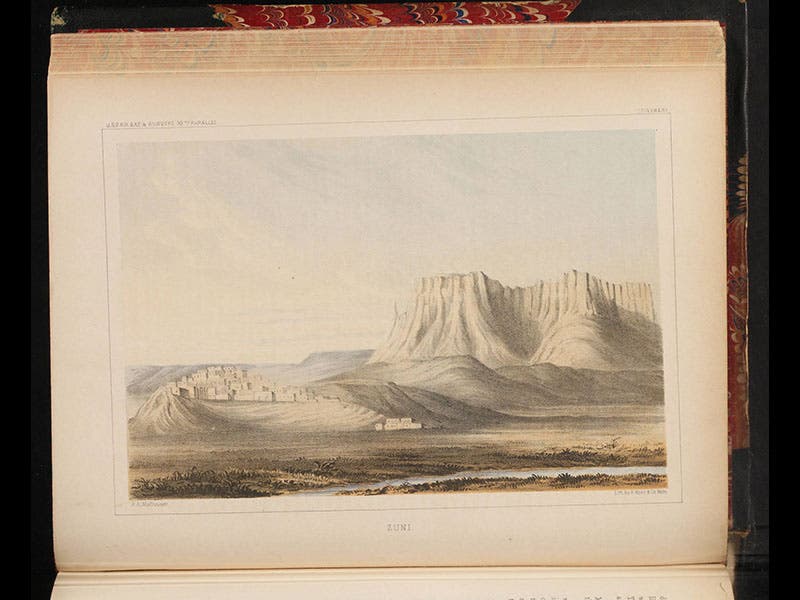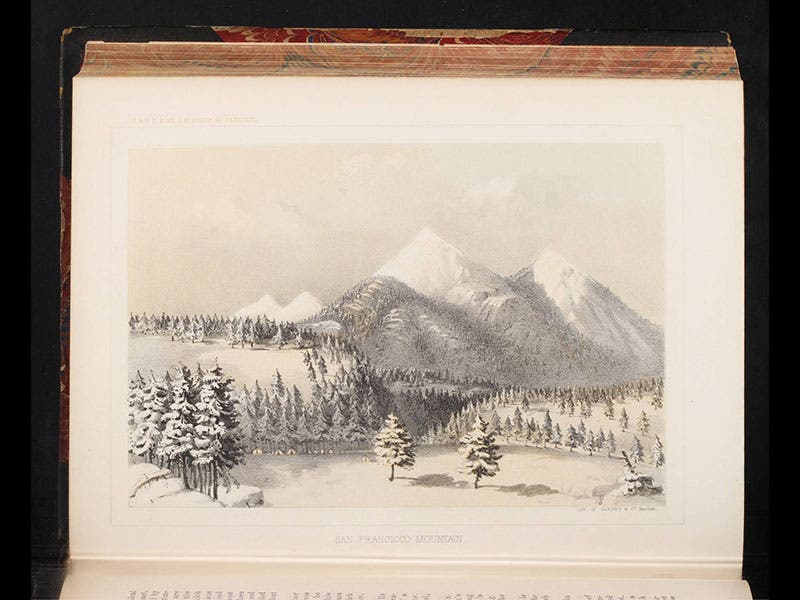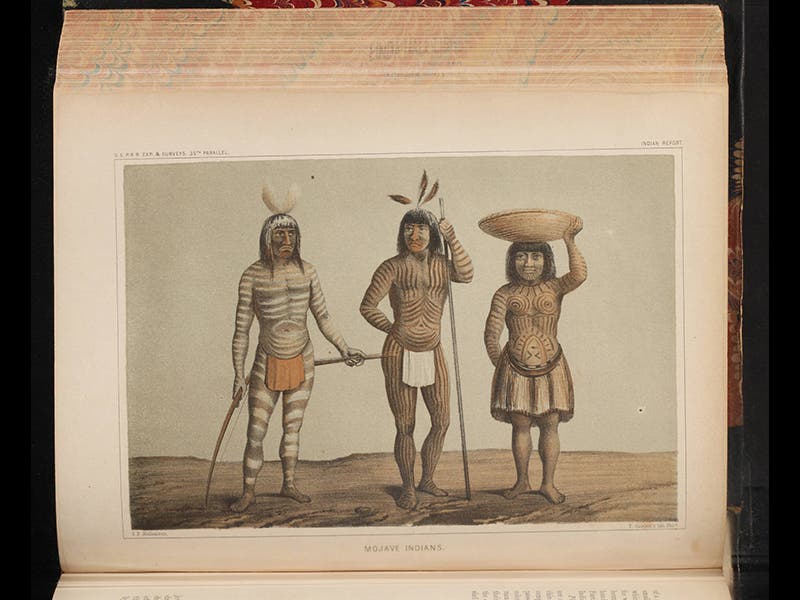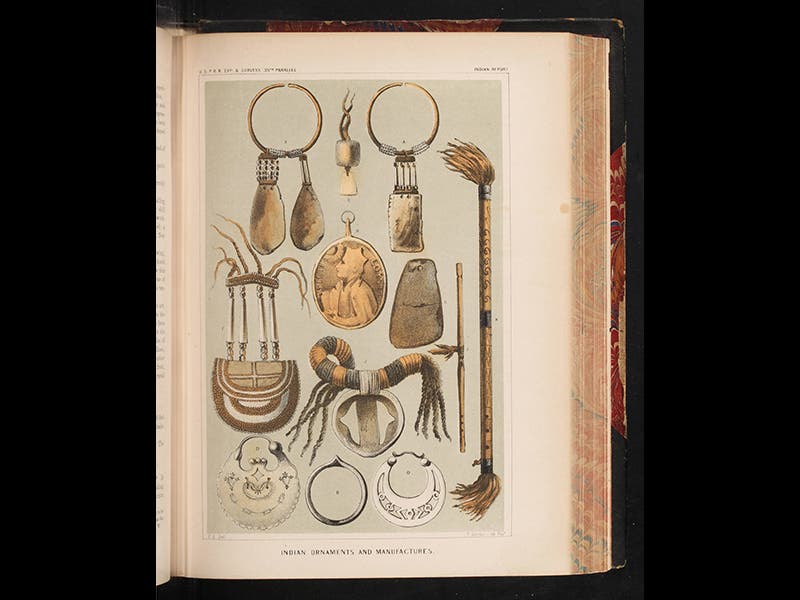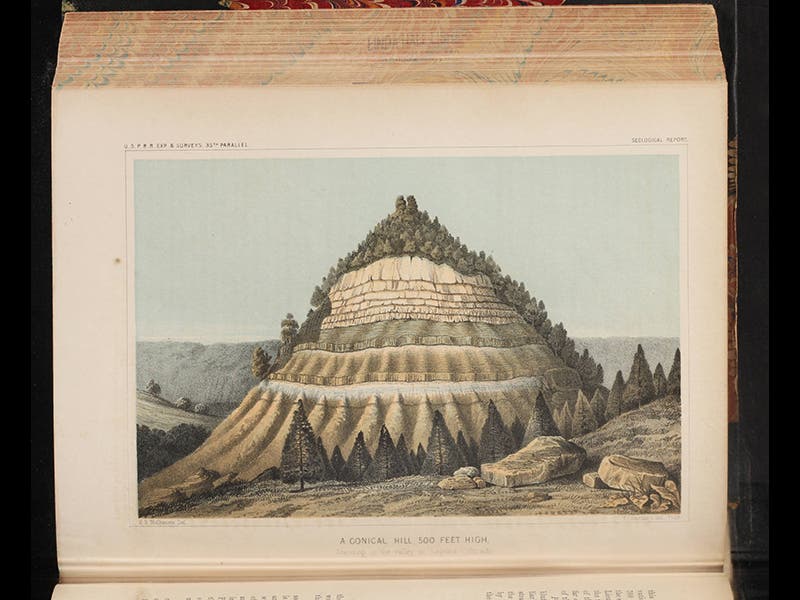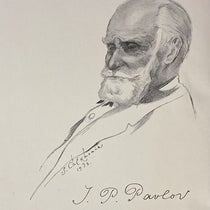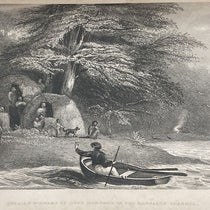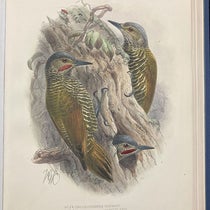Scientist of the Day - Amiel Weeks Whipple
Amiel Weeks Whipple, a US army officer and engineer, died May 7, 1863. In 1853, the U.S. Congress appropriated $150,000 for four western surveys, in search of the best route for a transcontinental railroad. Whipple was given charge of the expedition that explored the 35th parallel, from Fort Smith, Arkansas, through Oklahoma, Texas, New Mexico, and Arizona, all the way to Los Angeles. The expedition took about 8 months, from fall 1853 to early summer 1854, and as it was intended to be a scientific expedition, Whipple took along an astronomer, a botanist, a zoologist, a geologist, another topographic engineer, and an artist. Many of his team would later distinguish themselves on other western expeditions; an example is Albert H. Campbell, whom we featured in this space on Feb. 23, 2015.
The official narrative of the Whipple expedition was published as volume 3 of the Pacific Railroad Reports, which in its 13 volumes encompassed all four of the parallel surveys plus three California surveys. Whipple's narrative differed from some of the others in that he was very interested in ethnography and was fascinated by native American culture, so Whipple’s volume has a number of chromolithographs of pueblos (see second image above), native peoples (fourth image) and Indian artifacts (fifth image). Other lithographs give a good account of the landscape they passed through, so you can see a bivouac (first image), the San Francisco mountains in Arizona (third image), and a stratified hill that Whipple called Pyramid Mountain (sixth image)
We displayed Whipple's volume of the Pacific Railroad Reports in our 2004 exhibition, Science Goes West. When the Civil War broke out, Whipple served in the Union forces and was fatally wounded at Chancellorsville. He was 44 years old at his death.
Dr. William B. Ashworth, Jr., Consultant for the History of Science, Linda Hall Library and Associate Professor, Department of History, University of Missouri-Kansas City

